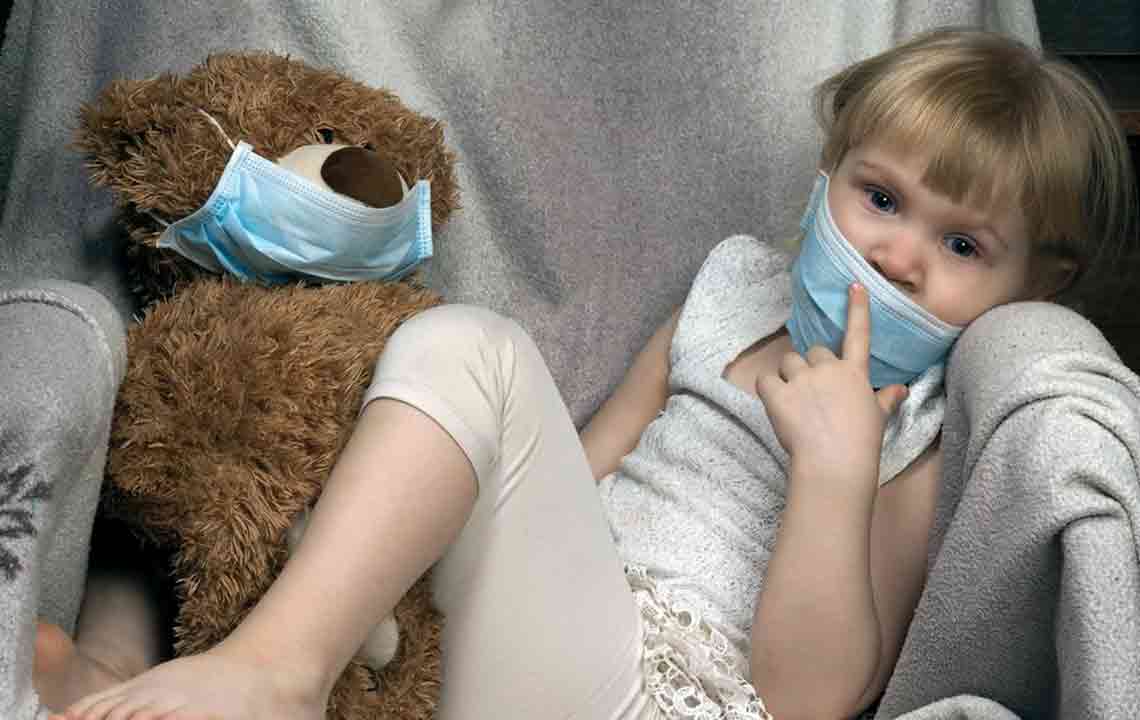Knowledge and Awareness regarding Children’s Allergies
Knowing if your child has an allergy or a cold can be tricky. We tend to become over precautious when it comes to handling our kids. Well, what else can be done as these poor kids can’t understand and convey what they feel like?
Whether your child has an allergy or is simply sick, it is difficult to decipher. We are here to tell you what symptoms to look for to understand and treat it better and which allergy medicines are suitable for kids.

Allergic triggers in kids
Kids are prone to catching allergies and disease as their immune system is still in the developmental stage. Hence, you need to be careful and watchful about their surroundings and their eating habits. Moreover, ensure that you understand if there is any genetic or family allergy history in your or your spouse’s side of the family to prevent your kids from developing one.
There are many factors that can trigger allergic reactions in kids. Some of which are environmental and can be controlled, while some are genetic and can be controlled to some extent. The most common triggers are as follows.
- Environmental elements
They can be insect bites or stings and pollens from trees and plants. - Home elements
They include allergens such as pet hair and fur and dust mites. - Other elements
They include allergens such as cigarette smoke and ash, smoke, exhausts or perfumes and deodorants. - Specific food items
They include allergens such as wheat, peanuts, and milk and milk products.
If you are still reading, there are chances that you suspect an allergy. These are some common allergies that your child can catch and can be treated for.
- Hay fever/allergic rhinitis
This is the most common of all allergies that your child can catch. Although it is known as hay fever, it does not cause any fever in your child and is not triggered by hay. The symptoms of hay fever are a runny and itchy nose, red eyes in some kids, sneezing, nasal congestion and blockage, and watery and itchy eyes in some kids. There are many allergy medicines available for kids for dealing with hay fever. - Nasal congestion
In the simplest term, it is called as “stuffy nose.” If your child has difficulty sleeping at night, breathes through his/her mouth, then he/she is suffering from nasal congestion. You need to treat it as early as possible because if left untreated, this might affect your child’s growth of teeth and facial bones. - Ear infections
Allergies can result in fluid accumulation in your child’s ears, leading to ear infections as well as loss of hearing. This must be treated early, else it may affect your child’s speech development and can lead to earaches and ear itching. - Food allergies
If you are breastfeeding your child and he/she has developed an allergy, say rashes or frequent motions, then you might have to get your child tested for possible food allergies. Once identified, you can eliminate those food items from your diet giving your child relief. Other than these allergies, kids most commonly develop allergies from milk and milk products, wheat, fish, and peanuts.
Kids, as they develop and grow old, usually outgrow allergies to milk, eggs, soy, and wheat. However, allergies to certain foods like peanuts might stay his lifetime. Doctors prescribe allergy medicines to such kids to prevent their body from going into any kind of shock. If your child has any food allergy, we advise you to see your doctor and eliminate those food items from his diet and get the right allergy medicine for kids.
- Some antihistamine medicines like Cetirizine/Zyrtec, Benadryl, and Allerga can be given to kids. They are readily available as over the counter drugs and are effective allergy medicine for kids.
- Singulair prevents asthma attacks and eases itchiness, eye allergies, sneezing, and weeding activities.
Your kid’s developing allergies very much depend on the genetics. If you or your spouse or either of your close family members are allergic to something, then there are increased chances of your child developing those allergies too. It is more dominated by genes than the environment, though environmental factors too can’t be completely ruled out. You should also ideally be getting your child tested for allergies for early treatment of various allergies if left untreated or are delayed can hamper your child’s development. When you get your child tested, you basically rule out other possibilities like asthma that usually develops in kids of age six or below.
It is also important to inform your child’s school of all the allergies. Schools are sensitive and aware of kid’s allergies. They give special attention to such kids to prevent them from facing any allergic triggers. This is especially advisable if your child has any kind of food allergy and goes to a school where lunch is served so that those food items can be eliminated from his/her diet.

